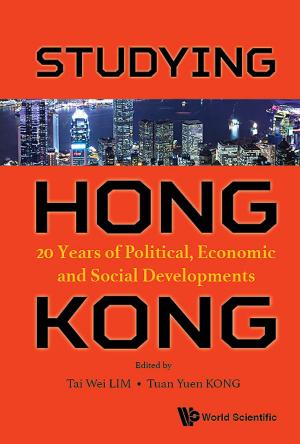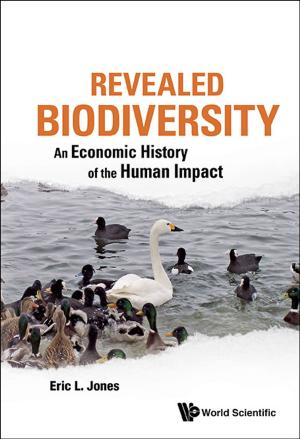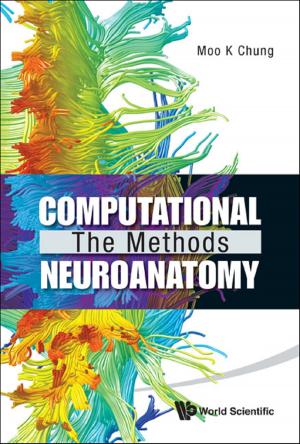Unintended Consequences in Singapore
Nonfiction, Social & Cultural Studies, Political Science, Government, Public Affairs & Administration, Social Policy, Social Science| Author: | David Chan | ISBN: | 9789813231757 |
| Publisher: | World Scientific Publishing Company | Publication: | July 5, 2018 |
| Imprint: | WSPC | Language: | English |
| Author: | David Chan |
| ISBN: | 9789813231757 |
| Publisher: | World Scientific Publishing Company |
| Publication: | July 5, 2018 |
| Imprint: | WSPC |
| Language: | English |
When policymakers, communities or advocates make decisions and take actions, they do so with the purpose of achieving some desired goal. But sometimes, unintended consequences occur. These are outcomes that are not the ones intended by the purposeful decision or action.
Unintended consequences can be positive or negative, although the discussions often focus on the unexpected adverse impact that may result from well-intentioned policies or public actions.
It is tempting to say that unintended consequences happen because we live in an uncertain and unpredictable world, and that there is not much we can do to prevent their occurrence or prepare for them. In fact, many unintended consequences are neither predetermined nor random. It is true that whether or not unintended consequences happen will be affected by many economic and social factors that Singapore is confronted with, but much will also depend on how we approach these factors and the potential consequences.
This book, based on the proceedings at the Behavioural Sciences Institute Conference 2017, explores various issues about unintended consequences in Singapore. The book is organised into four parts. Part 1 provides an overview of issues involved in thinking about unintended consequences. Part 2 examines unintended consequences in the context of Singapore's goal to become a smart nation and compares the perspectives between public and private sector organisations on dealing with uncertainty. Part 3 analyses the relationships linking unintended consequences to healthcare outcomes and the management of race relations in Singapore. Part 4 addresses specific questions on unintended consequences in Singapore in terms of the nation's history, immigration, education, meritocracy, civil service culture and mindsets, and relationships between people and government.
This book will provide the reader new perspectives and possibilities related to achieving intended societal goals and building a strong Singapore society.
Contents:
-
About the Editor
-
About the Contributors
-
Preface
-
Part I:
- An Innovative Singapore in an Uncertain World: Dealing with Unknowns and Unintended Consequences (Arnoud De Meyer)
- Approaches to Unintended Consequences in Singapore (David Chan)
- Panel Discussion 1 (Arnoud De Meyer, David Chan & Han Fook Kwang)
-
Part II:
- Singapore's Smart Nation Initiative: Can We Future-Proof Ourselves? (Tan Kok Yam)
- Dealing with Uncertainty: Comparing Public and Private Sector Organisations in Singapore (Neo Boon Siong)
- Panel Discussion 2 (Tan Kok Yam, Neo Boon Siong & Lim Lai Cheng)
-
Part III:
- Unexpected Outcomes of Healthcare in Singapore (Jeremy Lim)
- Race Relations in Singapore: Policies for the Management of Race and their Unintended Consequences (Mathew Mathews)
- Panel Discussion 3 (Jeremy Lim, Mathew Mathews & Paulin Straughan)
-
Part IV:
- Closing Panel Discussion: Unintended Consequences in Singapore (David Chan, Chan Heng Chee, Han Fook Kwang, Kishore Mahbubani & Tommy Koh)
Sample Chapter(s)
Chapter 1: An Innovative Singapore in an Uncertain World: Dealing with Unknowns and Unintended Consequences
Readership: General public, civil servants, NGOs, students, academics and those interested in social and behavioural issues concerning unintended consequences in Singapore.
Key Features:
- This is the first comprehensive volume that examines the various social and behavioural issues concerning unintended consequences in Singapore. These issues have continuously received wide public and policy attention both in and outside Singapore
- The speakers and panelists are leaders in their respective areas and they approach the topic by providing an informative review, presenting a state-of-the-art analysis, identifying critical unresolved issues and proposing innovative solutions to the problems identified
- The speakers and panelists are very well-known locally and internationally, including academics, practitioners and public intellectuals. The wealth and diversity of experience, reputation and influence of this set of authors will provide a very wide reach and multiplier effect in the readership market
- The book, based on the presentations and panel discussions in the BSI Conference held in February 2017, is written in an active style which will make it highly engaging for the reader
When policymakers, communities or advocates make decisions and take actions, they do so with the purpose of achieving some desired goal. But sometimes, unintended consequences occur. These are outcomes that are not the ones intended by the purposeful decision or action.
Unintended consequences can be positive or negative, although the discussions often focus on the unexpected adverse impact that may result from well-intentioned policies or public actions.
It is tempting to say that unintended consequences happen because we live in an uncertain and unpredictable world, and that there is not much we can do to prevent their occurrence or prepare for them. In fact, many unintended consequences are neither predetermined nor random. It is true that whether or not unintended consequences happen will be affected by many economic and social factors that Singapore is confronted with, but much will also depend on how we approach these factors and the potential consequences.
This book, based on the proceedings at the Behavioural Sciences Institute Conference 2017, explores various issues about unintended consequences in Singapore. The book is organised into four parts. Part 1 provides an overview of issues involved in thinking about unintended consequences. Part 2 examines unintended consequences in the context of Singapore's goal to become a smart nation and compares the perspectives between public and private sector organisations on dealing with uncertainty. Part 3 analyses the relationships linking unintended consequences to healthcare outcomes and the management of race relations in Singapore. Part 4 addresses specific questions on unintended consequences in Singapore in terms of the nation's history, immigration, education, meritocracy, civil service culture and mindsets, and relationships between people and government.
This book will provide the reader new perspectives and possibilities related to achieving intended societal goals and building a strong Singapore society.
Contents:
-
About the Editor
-
About the Contributors
-
Preface
-
Part I:
- An Innovative Singapore in an Uncertain World: Dealing with Unknowns and Unintended Consequences (Arnoud De Meyer)
- Approaches to Unintended Consequences in Singapore (David Chan)
- Panel Discussion 1 (Arnoud De Meyer, David Chan & Han Fook Kwang)
-
Part II:
- Singapore's Smart Nation Initiative: Can We Future-Proof Ourselves? (Tan Kok Yam)
- Dealing with Uncertainty: Comparing Public and Private Sector Organisations in Singapore (Neo Boon Siong)
- Panel Discussion 2 (Tan Kok Yam, Neo Boon Siong & Lim Lai Cheng)
-
Part III:
- Unexpected Outcomes of Healthcare in Singapore (Jeremy Lim)
- Race Relations in Singapore: Policies for the Management of Race and their Unintended Consequences (Mathew Mathews)
- Panel Discussion 3 (Jeremy Lim, Mathew Mathews & Paulin Straughan)
-
Part IV:
- Closing Panel Discussion: Unintended Consequences in Singapore (David Chan, Chan Heng Chee, Han Fook Kwang, Kishore Mahbubani & Tommy Koh)
Sample Chapter(s)
Chapter 1: An Innovative Singapore in an Uncertain World: Dealing with Unknowns and Unintended Consequences
Readership: General public, civil servants, NGOs, students, academics and those interested in social and behavioural issues concerning unintended consequences in Singapore.
Key Features:
- This is the first comprehensive volume that examines the various social and behavioural issues concerning unintended consequences in Singapore. These issues have continuously received wide public and policy attention both in and outside Singapore
- The speakers and panelists are leaders in their respective areas and they approach the topic by providing an informative review, presenting a state-of-the-art analysis, identifying critical unresolved issues and proposing innovative solutions to the problems identified
- The speakers and panelists are very well-known locally and internationally, including academics, practitioners and public intellectuals. The wealth and diversity of experience, reputation and influence of this set of authors will provide a very wide reach and multiplier effect in the readership market
- The book, based on the presentations and panel discussions in the BSI Conference held in February 2017, is written in an active style which will make it highly engaging for the reader















